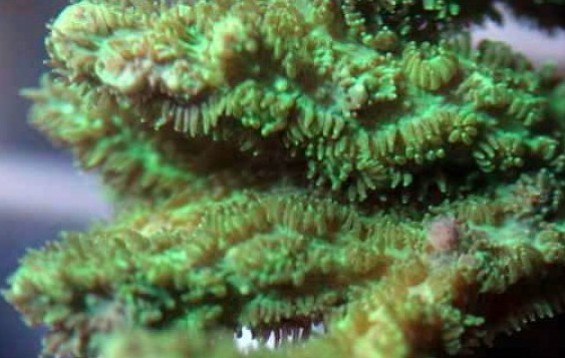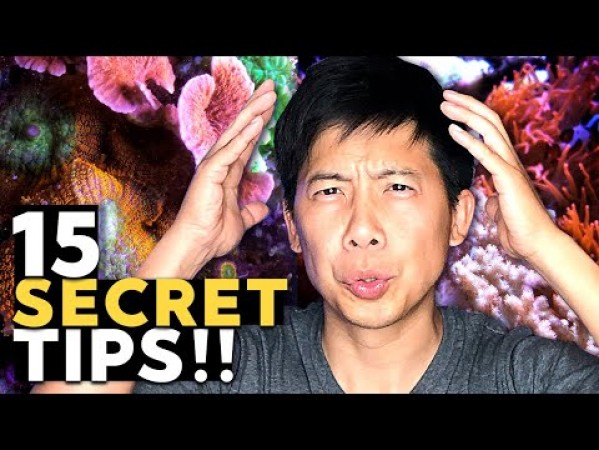- Name:
Fluorescent Horn Coral
(View AKA's) - Family: Merulinidae
- Species: Hydnophora
- Scientific Name: Hydnophora sp


General info about Fluorescent Horn Coral
In general, corals coming from the genus Hydnophora takes several coral lifeform like branching and arborescent. Most of its member species does not have an encrusting base and usually has an appearance that resembles like a tree. They have a unique skeletal structure like calcareous bumps that are common in areas where corallites intersect with each other.
As for the Fluorescent Horn Coral, they are predominantly colored green with yellow brown polyps. This are the water parameters in cultivating Fluorescent Horn Coral:
- Calcium: 385 - 425 ppm
- Alkalinity: 2.86 - 4.29 MEQ/L (8 - 12 dKH)
- Phosphates: 0
- Magnesium: 1350 - 1500
- Strontium: 8 - 10
- Temperature: 74° - 83° F (23° - 28° C)
- Salinity / Specific Gravity: 1.023 - 1.025
Fluorescent Horn Coral Diet & Nutrition
The Fluorescent Horn Coral get its primary nutrition from the symbiotic zooxanthellae living within its tissues. However, since they have a voracious appetite, supplemental feeding is highly recommended by adding mysis and brine shrimp.
Fragging / Propagating Fluorescent Horn Coral
A mature tank is highly recommended in propagating Fluorescent Horn Coral. They must be set at the middle or bottom part of the tank.
Flow / Lighting Requirements for Fluorescent Horn Coral
The Fluorescent Horn Coral requires moderate to strong lighting and moderate waterflow.
Fluorescent Horn Coral Origin
The Fluorescent Horn Coral can be found in the waters of the Indo-Pacific Ocean, particularly in Australia, Nicobar Islands, Fiji, Kyushu Islands and in the Marianas Islands. They are now considered as a near threatened species listed under Appendix II of the CITES list.
Caution Should be Taken with Fluorescent Horn Coral
The Fluorescent Horn Coral has an aggressive behaviour. With this, proper spacing must be observed in relation to other corals. You also have to take note that their color may fade, especially if lighting requirement is not meet.
How to Acclimate Fluorescent Horn Coral
Fluorescent Horn Coral is purely marine. So, therefore, salinity must be maintained thoroughly at 1.023 to 1.025 specific gravity.
Stinging Tentacles on Fluorescent Horn Coral
The Fluorescent Horn Coral has long sweeper tentacles that can be extended and sting nearby corals.
Original Detail
| Name | Species | Family | Scientific Name | More Detail | Added by |
|---|---|---|---|---|---|
| Fluorescent Horn Coral | Hydnophora | Merulinidae | Hydnophora sp | In general, corals coming from the genus Hydnophora takes several coral lifeform like branching and arborescent. Most of its member species does not have an encrusting base and usually has an appearance that resembles like a tree. They have a unique skeletal structure like calcareous bumps that are common in areas where corallites intersect with each other. As for the Fluorescent Horn Coral, they are predominantly colored green with yellow brown polyps. This are the water parameters in cultivating Fluorescent Horn Coral:
|
PalaciosAn |
Changed by users
| Submitted Date | Submitted By | Status | Action |
|---|


